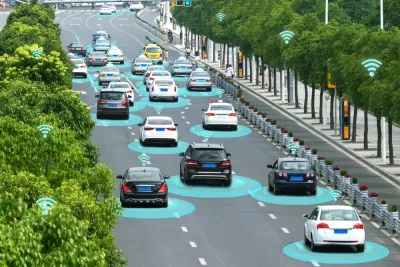Autonomous vehicle technology assumes that partial automation, where people are in control of vehicles at varying levels, is feasible. But research shows this is not how humans behave.

Bob O’Donnell writes about delays in the development of autonomous vehicle technology. One issue, he says, is that the current system of automation levels, which range from no automation at Level 0 to full automation at Level 5, do not adequately account for human nature.
This range assume that vehicles can be semiautonomous, as reflected in Levels 2-4, where people are always ready to take control. "But people don’t behave that way in the car. They either they pay attention, or they don’t," says O’Donnell.
He argues that a two-category distinction, assisted or autonomous, more accurately captures human behavior and would help with the long-term development of this technology.
"Full-throated advocates of full vehicle autonomy may decry any further delays to an autonomous driving world, but simplifying and focusing car technology developments into two simple categories is a safer and more realistic choice for the long term. Anything in between isn’t only impractical, it’s dangerous," says O’Donnell.
FULL STORY: How the race to autonomous cars got sidetracked by human nature

Maui's Vacation Rental Debate Turns Ugly
Verbal attacks, misinformation campaigns and fistfights plague a high-stakes debate to convert thousands of vacation rentals into long-term housing.

Planetizen Federal Action Tracker
A weekly monitor of how Trump’s orders and actions are impacting planners and planning in America.

Chicago’s Ghost Rails
Just beneath the surface of the modern city lie the remnants of its expansive early 20th-century streetcar system.

Bend, Oregon Zoning Reforms Prioritize Small-Scale Housing
The city altered its zoning code to allow multi-family housing and eliminated parking mandates citywide.

Amtrak Cutting Jobs, Funding to High-Speed Rail
The agency plans to cut 10 percent of its workforce and has confirmed it will not fund new high-speed rail projects.

LA Denies Basic Services to Unhoused Residents
The city has repeatedly failed to respond to requests for trash pickup at encampment sites, and eliminated a program that provided mobile showers and toilets.
Urban Design for Planners 1: Software Tools
This six-course series explores essential urban design concepts using open source software and equips planners with the tools they need to participate fully in the urban design process.
Planning for Universal Design
Learn the tools for implementing Universal Design in planning regulations.
planning NEXT
Appalachian Highlands Housing Partners
Mpact (founded as Rail~Volution)
City of Camden Redevelopment Agency
City of Astoria
City of Portland
City of Laramie





























